“I am both grateful and overwhelmed. It is a privilege to be able to curate sonically pleasing journeys for people. As a Black South African intersex woman, I weigh very little on the privilege scale. The odds are stacked against me, yet, here I am pursuing my dreams and turning them into something fulfilling.
I am proud of myself.”
Desiree, 2022
My next interviewee seems to have the world at her feet, or rather, at her hands, as she continues to take the global deejaying scene by storm.
Palesa Desiree Shilabje, better known as Desiree, is a Johannesburg based disc jockey and fashion model — someone I believe to be one of the most exciting talents currently taking up space on our global deejaying scene.
If you’re an avid follower of the local afro tech and electro party scene, you may have witnessed Desiree live in action, rubbing musical shoulders with the likes of Black Coffee, Shimza and many more.
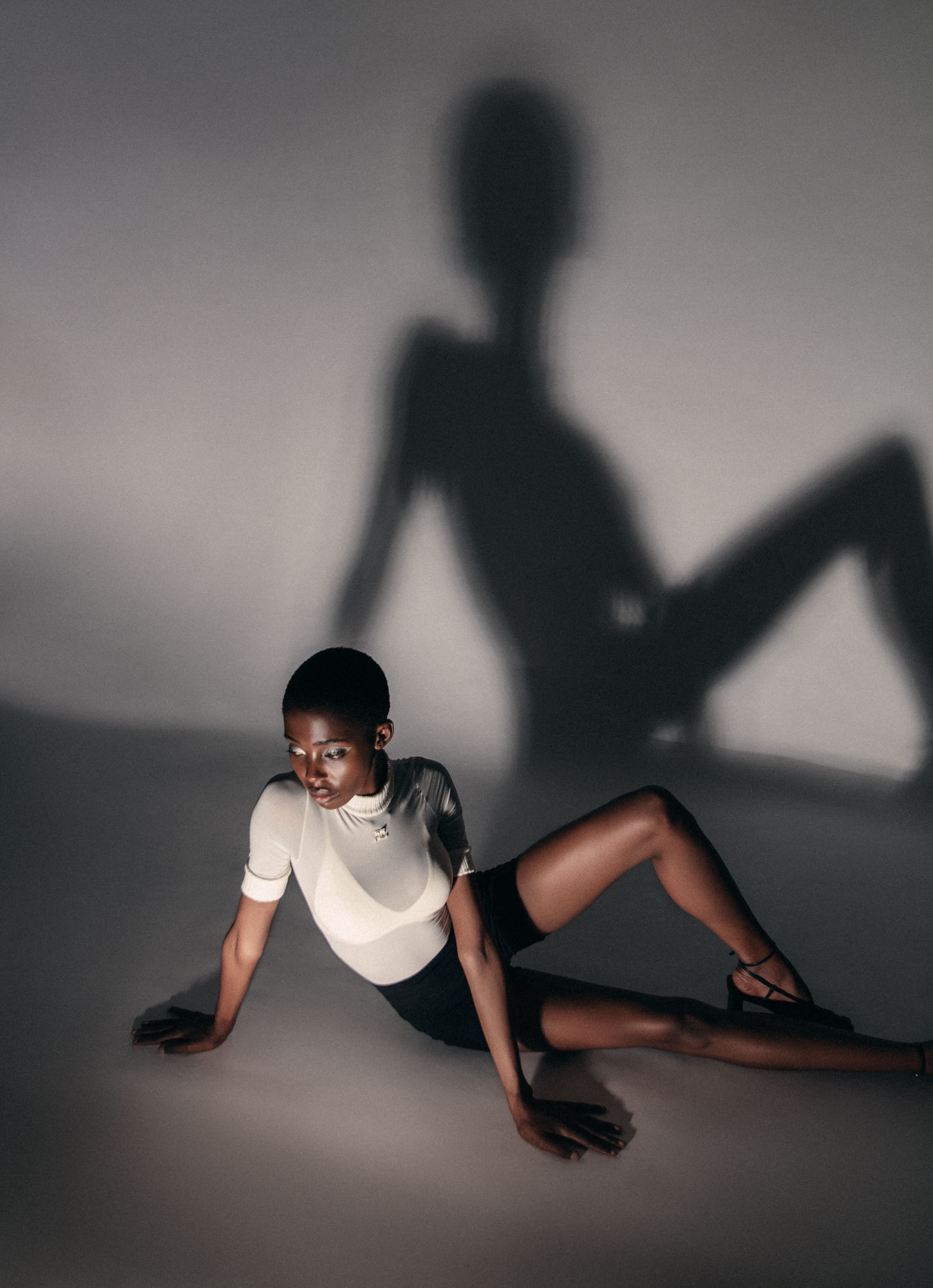
Photograph by Silvia Markeviciute.
But what is it about this polymath which sets her apart on so many creative disciplines? My virtual interview with her interrogates and finds out.
And don’t get it twisted, the talent leaps into her modelling career and is also evident with her debuts in the international fashion weeks of Milan and Paris.
I’ve always found Desiree to be quite remarkable — and over the years of knowing her — I have managed to unpack why. It’s her stoic resilience, or rather, her commitment to her dream. The realisation that she can be exactly who she believes herself to be.
I feel as if this is the core reason her followers are so loyally entrenched within her career — they really walk this journey with her because it also (somewhat) feels like it’s their journey too.
So leading up to her Boiler Room set in Johannesburg tomorrow, I had the honour and privilege of virtually interviewing Desiree in order to understand more about nascent days as a disc jockey, her musical influences, championing her intersexuality, life as a fashion model and more!
Would you mind introducing yourself and including a short description of how you got into the profession of deejaying?
Desiree: I am a born and bred Joburger whose passion and taste in music has always stood out. As a Black girl growing up in a township in Jozi, I found myself gravitating towards alternative genres of music — genres which were not prevalent in my [immediate] surroundings.
One of these genres was electronic music, which grew on me throughout my high school career. At the time, I was also obsessed with the fashion industry and would find myself indulging in marathons of the latest collections from my favourite fashion houses.
The music that played during the fashion shows was largely electronic. I found myself jamming to house, techno and electronica tunes on full blast in my grandmother’s living room. My family, friends and neighbours all thought I was a weirdo.
So, I think the journey began there for me. I found myself collecting so much music and kind of being a tastemaker. I would introduce these alternative sounds to friends and family and people would usually be impressed by how unique, yet groovy my selections were.
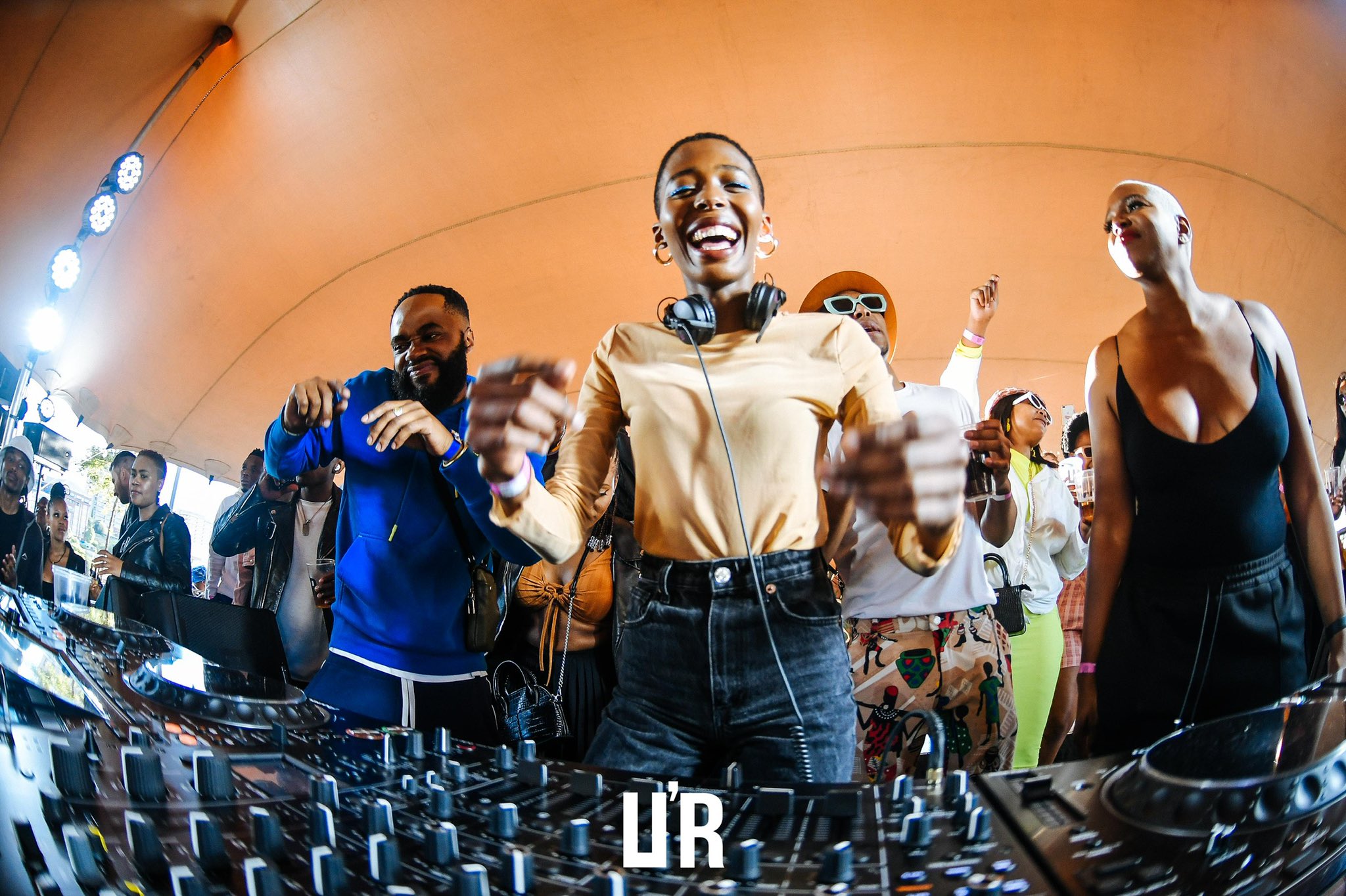
Photograph by zito_ports_
Fast forward to my university years — where I was based in Braamfontein for four years — I started to immerse myself in nightlife. This is where I discovered South African afro and deep house and I fell in love.
The music just made sense to me, especially in a party environment. It [integrated] those electronic sounds I grew up loving with authentic drums unique to South Africa and the wider continent. It just made sense.
Due to this newfound love of mine, I found myself consistently being at raves that had Djs who played music like that. All the prominent Djs in the afro and deep house scene also knew who I was, not as a Dj but as a devoted fan to the sound.
I kind of made a name for myself as a lover of house music first and foremost, before taking the leap of faith and formally being a selector myself.
Eventually, I found myself collecting so much of the music that I began to establish my own taste in terms of the specific sound I like and how I like a mixtape to flow. I then began making my own mixes using an app on my computer. I posted these mixes on my Soundcloud — and things just kind of organically grew from there.
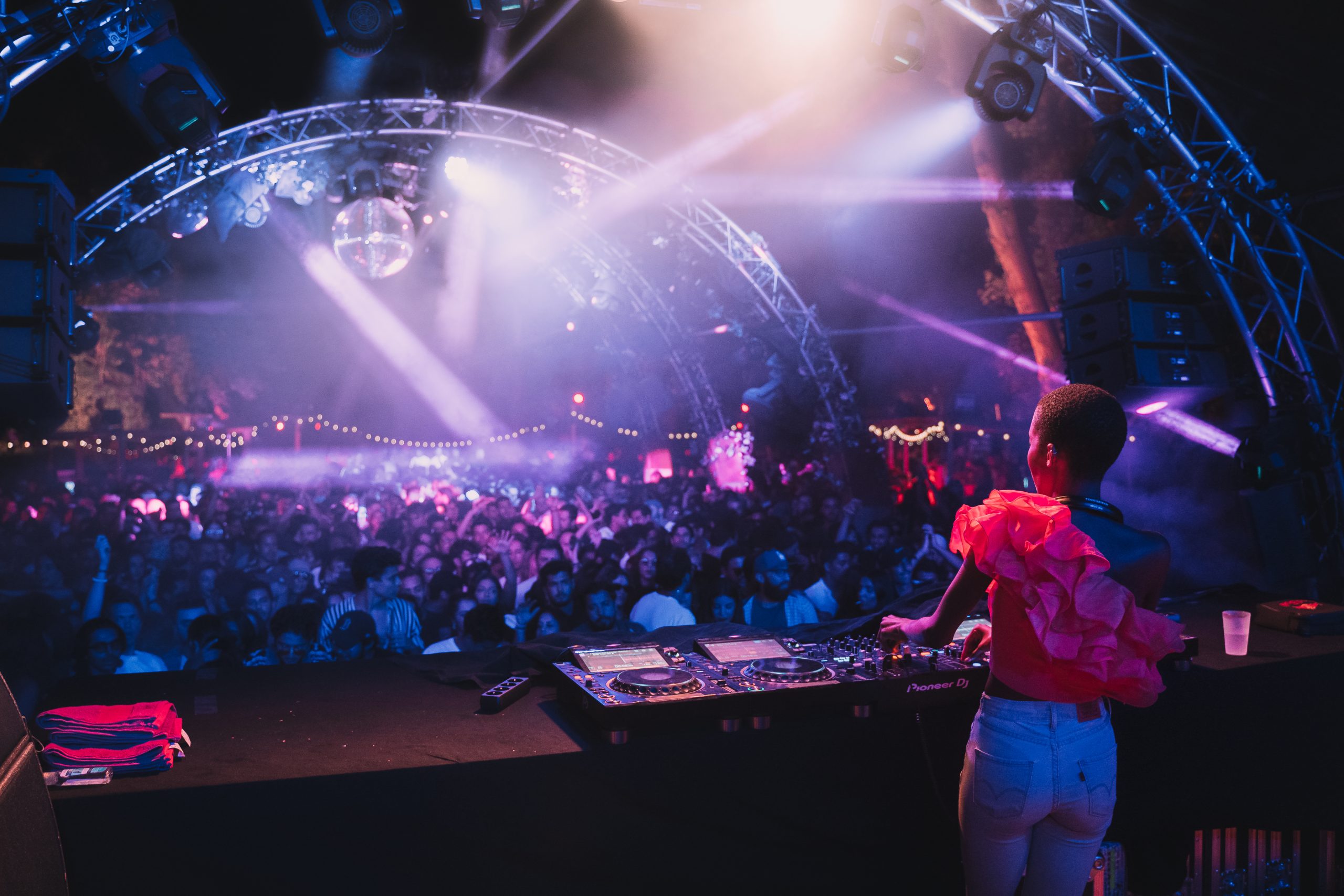
I know that you are also a well established model. When and how did this journey begin?
Desiree: I gravitated towards modelling because I was seeking a sense of belonging. Growing up as a naturally extremely slender and tall Black girl, I was body shamed for not having enough meat on my bones. The beauty standard in Black South African cultures is not tall and skinny. Curves are sought after and I don’t really have them.
So, when I discovered the fashion industry as a child, it brought some sort of closure to me as I genuinely did not feel beautiful enough growing up because of my physique. I decided to venture into modelling because I wanted to feel normal. I was tired of being teased and being called names like ‘lollipop,’ ‘mosquito,’ ‘match stick’ and ‘raindrop dodger’.
I just wanted to feel beautiful at the time because my day to day surroundings were not encouraging that feeling. From a more global perspective, I am aware of my skinny privilege — especially in white spaces. I am also well aware of the toxicity exuded by modelling in terms of championing an unrealistic body structure which negatively affects the body image of many women.
It has been amazing to watch how the industry has evolved in terms of [increasingly] vouching for diversity. A lot of work still needs to be done though — but if you compare how models look now to ten years ago — there has been a lot of progress which is great as representation matters!
I also just wish people could just stop body shaming people. If you genuinely have nothing positive or constructive to say, just keep it to yourself!
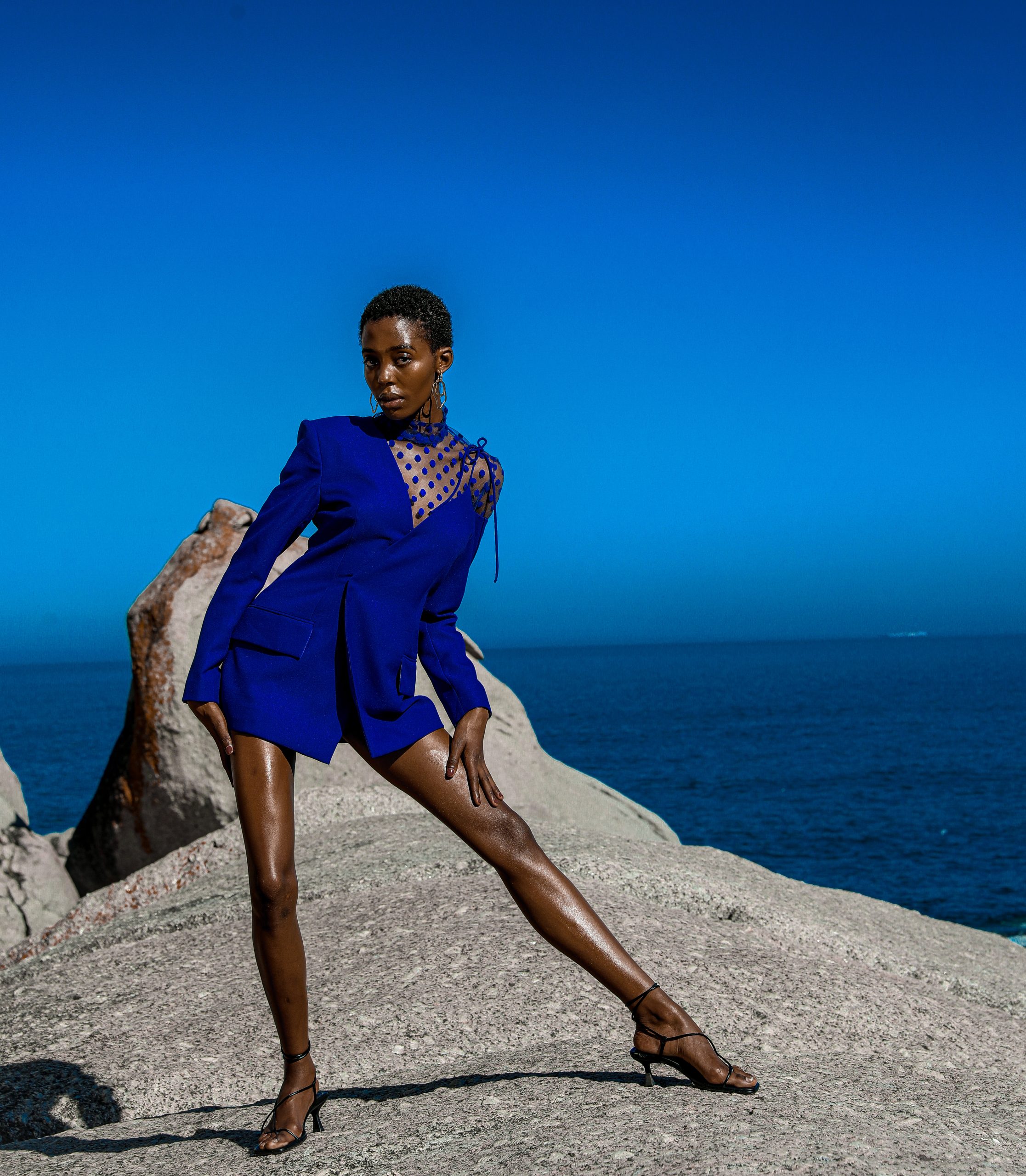
Photograph by Kitso Kgori.
Awesome, now introduction aside, we last caught up like this almost a year ago and since then, your career as a disc jockey has absolutely soared through the sky — well done!
How does this make you feel, can you tell us how the journey has been for you?
Desiree: I am both grateful and overwhelmed. It is a privilege to be able to curate sonically pleasing journeys for people. As a Black South African intersex woman, I weigh very little on the privilege scale. The odds are stacked against me, yet, here I am pursuing my dreams and turning them into something fulfilling.
I am proud of myself. It’s kind of wild to think that people trust my music taste so much — shoutout to every single person that has been supporting me since I started! The journey has not been easy though. I do not come from a family that has the financial capacity to support my artistic vision. The plan was for me to go do my masters and find a stable, well paying corporate job.
I rebelled against that and decided to take a path that is ‘not sought after’. To this day, I still get questions like “when are you going to find a real job?” from some family members. It’s discouraging but at the same time, I understand where they are coming.
Pursuing music is extremely unstable and there is little to no support from institutions to encourage artists in the continent to flourish. So yes, it has not been as smooth as people think it is from just seeing my social media, and it’s still not easy. It is, however, gratifying and makes me so so happy — that’s what keeps me going.
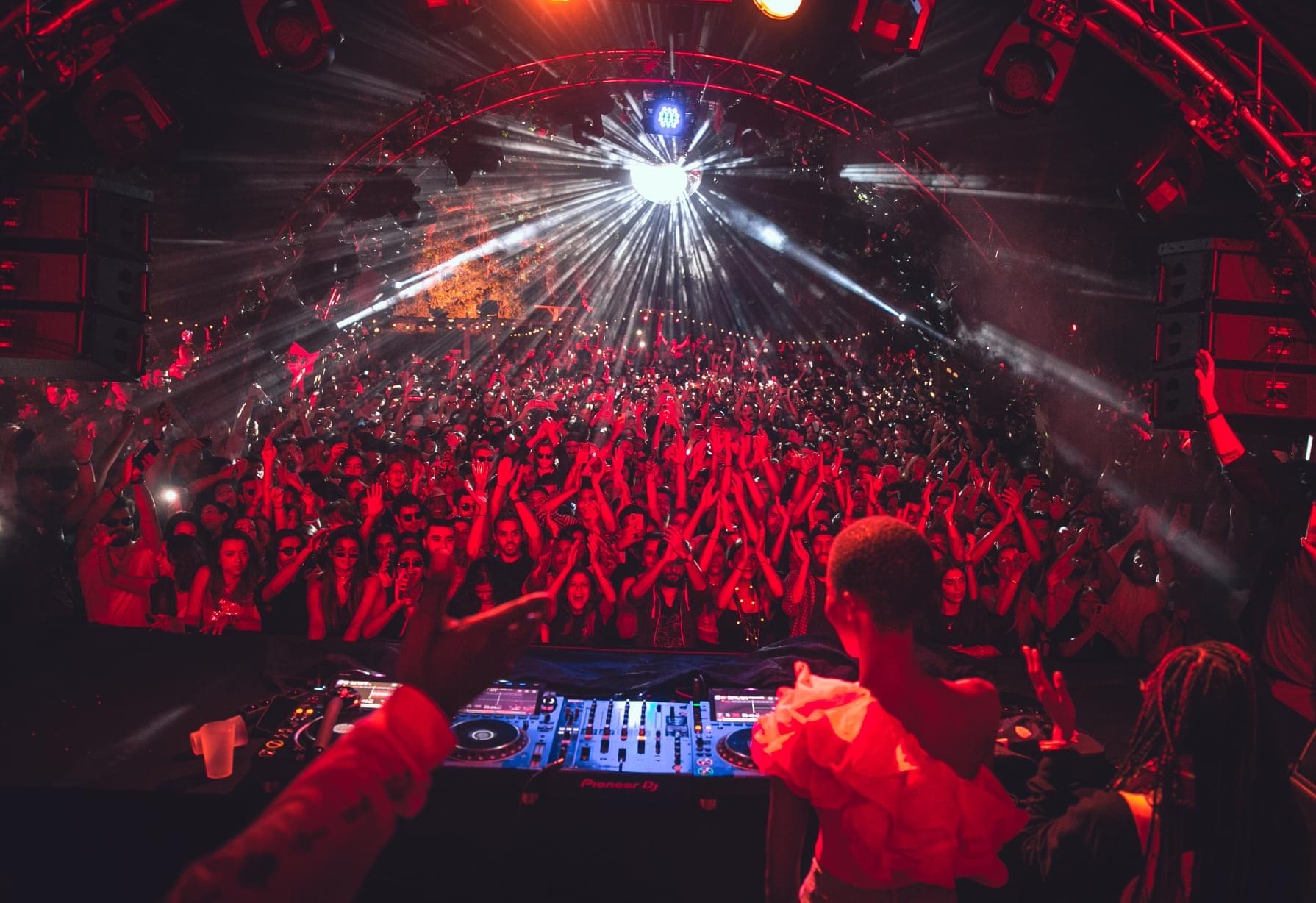
Last time we spoke, you also mentioned that you were trying your hand at music production. How has that been going for you? What and who would you say your main sources of inspiration are?
Desiree: I do not want to say much — but I am working on some tunes which I hope will be ready soon. It hasn’t been easy at all.
Studying music formally is a privilege many of us did not have. So I’ve had to resort to teaching myself from YouTube and learning from my producer friends by sitting in the studio with them, observing and asking tons of questions. That is why it is taking me so long to finish just one song but I will get there and I am enjoying this process of learning.
I am inspired by ambient and lush chord progressions that you would find in alternative music. I love beautiful melodies. I am also obsessed with the authentic rhythm found in ‘isghubhu’: a term loosely used to describe the drums and rhythm found in Gqom and Afro Tech. I am trying to merge this to create what resonates with me.
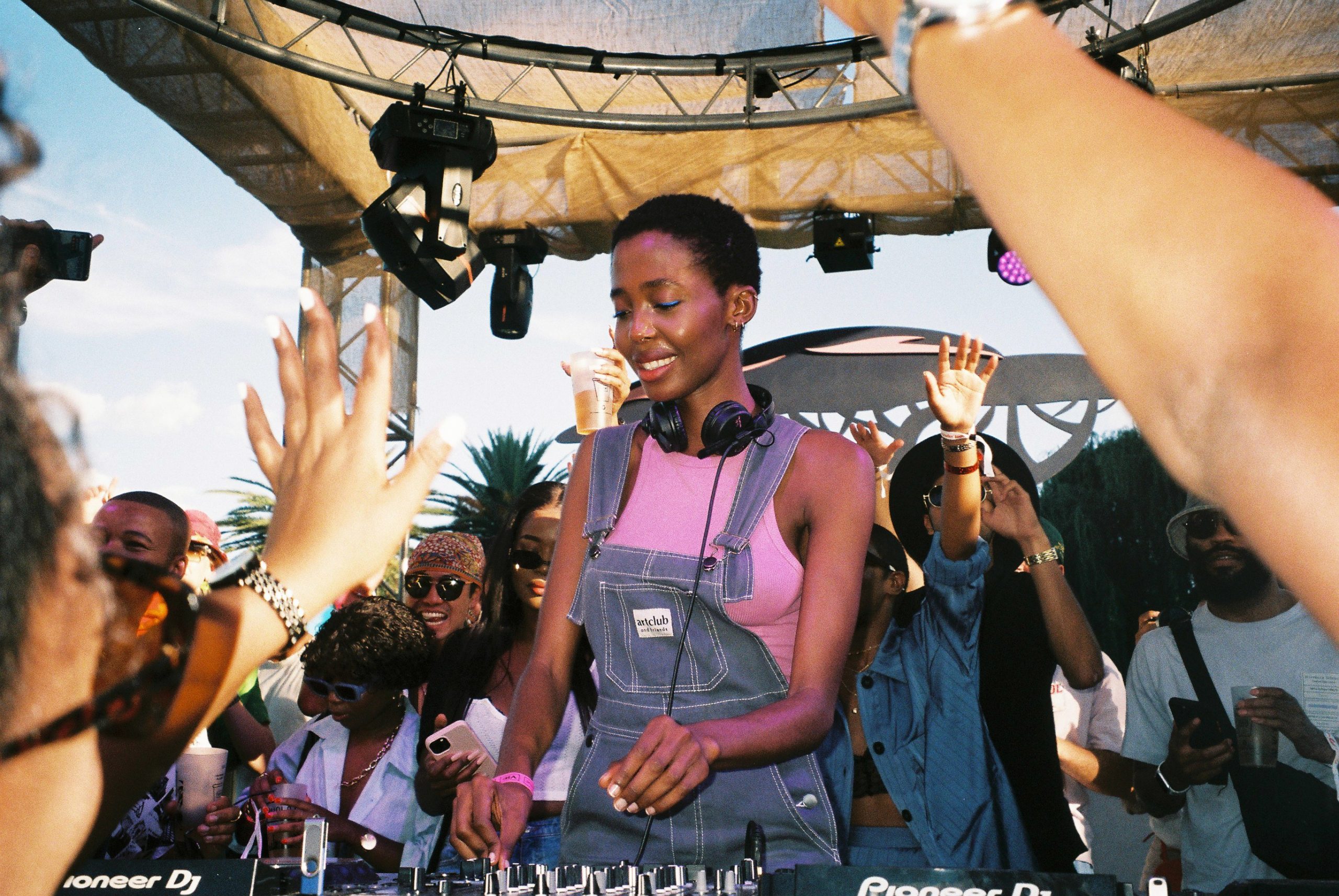
Photograph by Santé.
Your Instagram bio describes you as an “intersexy African interpreter of dance music” and about year ago, you shared that you were intersex on social media.
How has the personal journey been for you since then? I know your story has already managed to help so many people — myself included.
Desiree: It has been liberating and surprisingly positive. I expected to receive a backlash from people who are not open minded, but instead, I received so much love worldwide after I [shared my personal truth].
It just feels great to be my authentic self on a day to day basis and also provide representation for intersex people in media. I know how lonely it was when I found out at the age of 21.
I was ashamed and lived in secret. It’s still difficult because of the [pervasive] heteronormativity of the world we live in, however, I would not change my decision to [share my truth] for anything.
Intersex people exist and have always existed. It is normal to be intersex just as it is normal to be ginger and have freckles. I am overly delighted to be a beacon of hope for people like myself and anyone else that does not conform to heteronormativity.
From working with a plethora of stars such as Black Coffee and Shimza, to sharing international stages in Ibiza and Paris — what would you highlight as your favourite gigs or moments from your career thus far?
Desiree: Of course making my Ibiza debut last year was one for the books. It still feels surreal. I also played at Lost Village Festival in the UK, which is my favourite gig to date.
Any gig where I play for an open minded crowd is a highlight of mine. I have also had the privilege of sharing stages with my hero’s such as Henrik Schwarz, Erol Alkan, Honey Dijon and many more. I am so grateful.
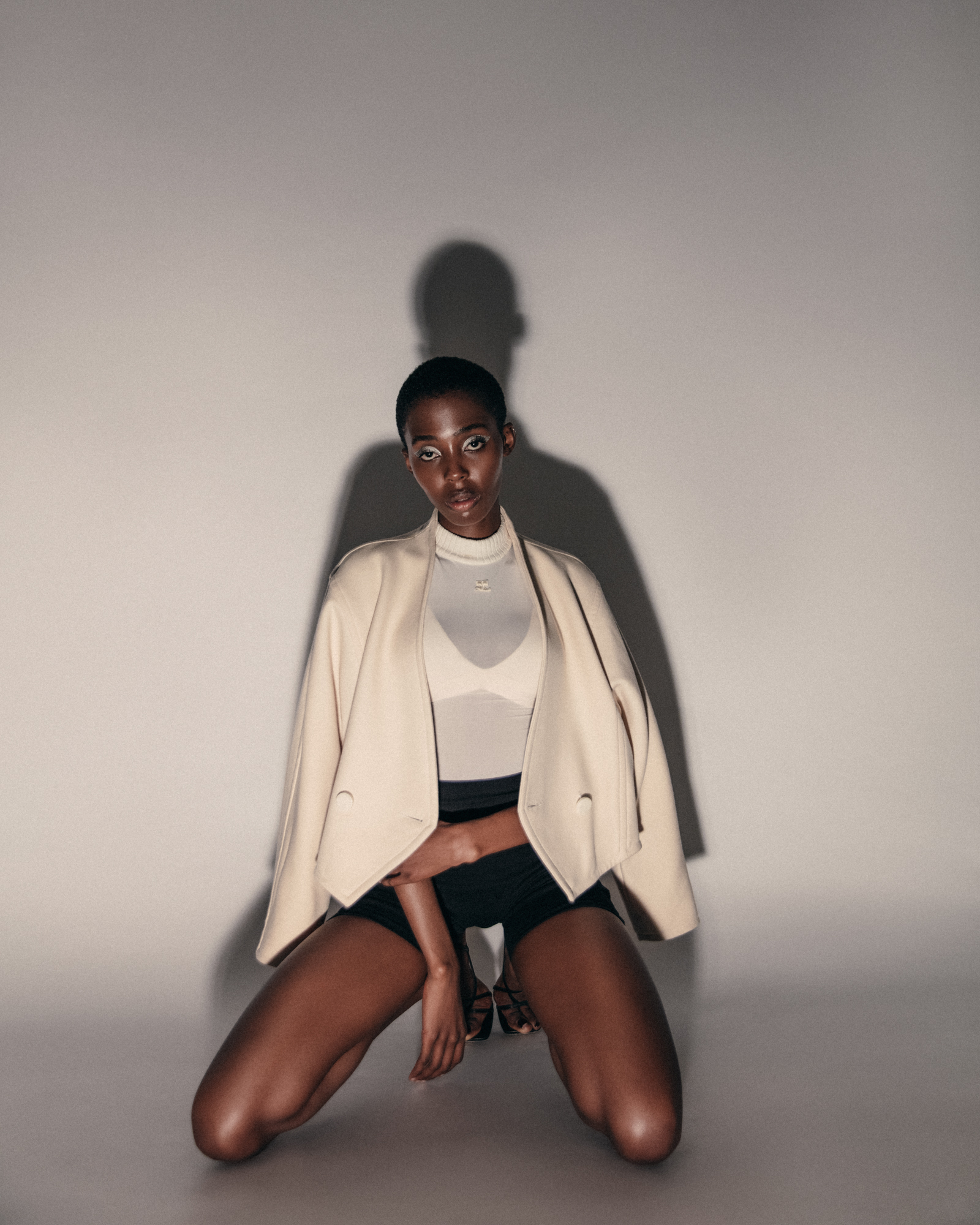
Photograph by Silvia Markeviciute.
What is next in the world of Desiree? 2022 has started off so well for you, what else do you have coming up in the year which you’re excited about?
Desiree: All my 2022 international gigs have not happened thus far due to Coronavirus complications, so it really has not been as smooth sailing just yet.
I do have some exciting gigs coming up — one being with the iconic Keinemusik crew in Berlin — that will be one for the books. I am also channeling a lot of energy towards finishing my tunes, so fingers crossed that will happen soon.
I also want to throw my own party later in the year. It is important for me to give back to the people who have supported me from the get go, and to provide a platform for house music selectors who are usually marginalised.
Wish me luck!
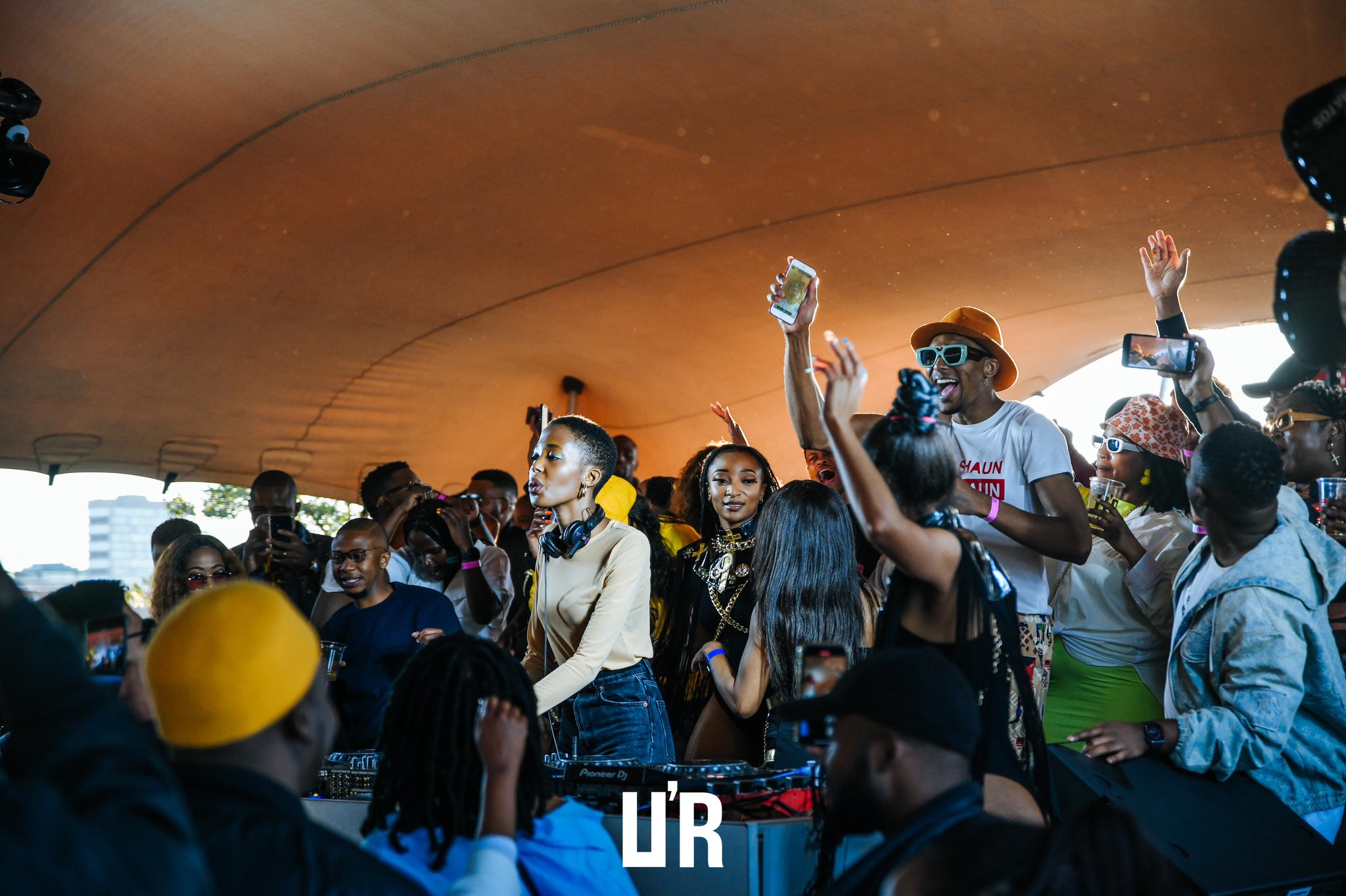
Photograph by zito_ports_
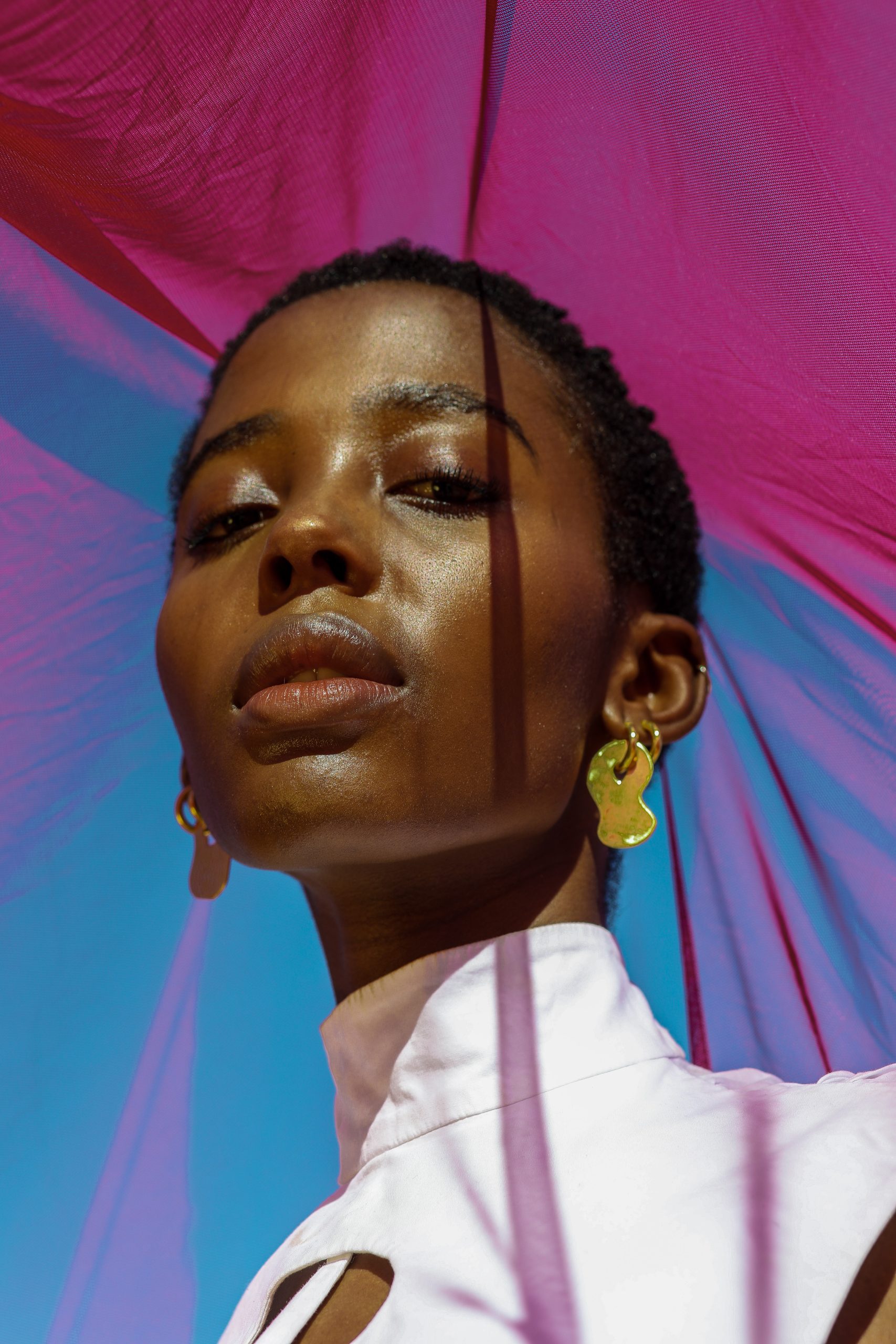
Photograph by Kitso Kgori.
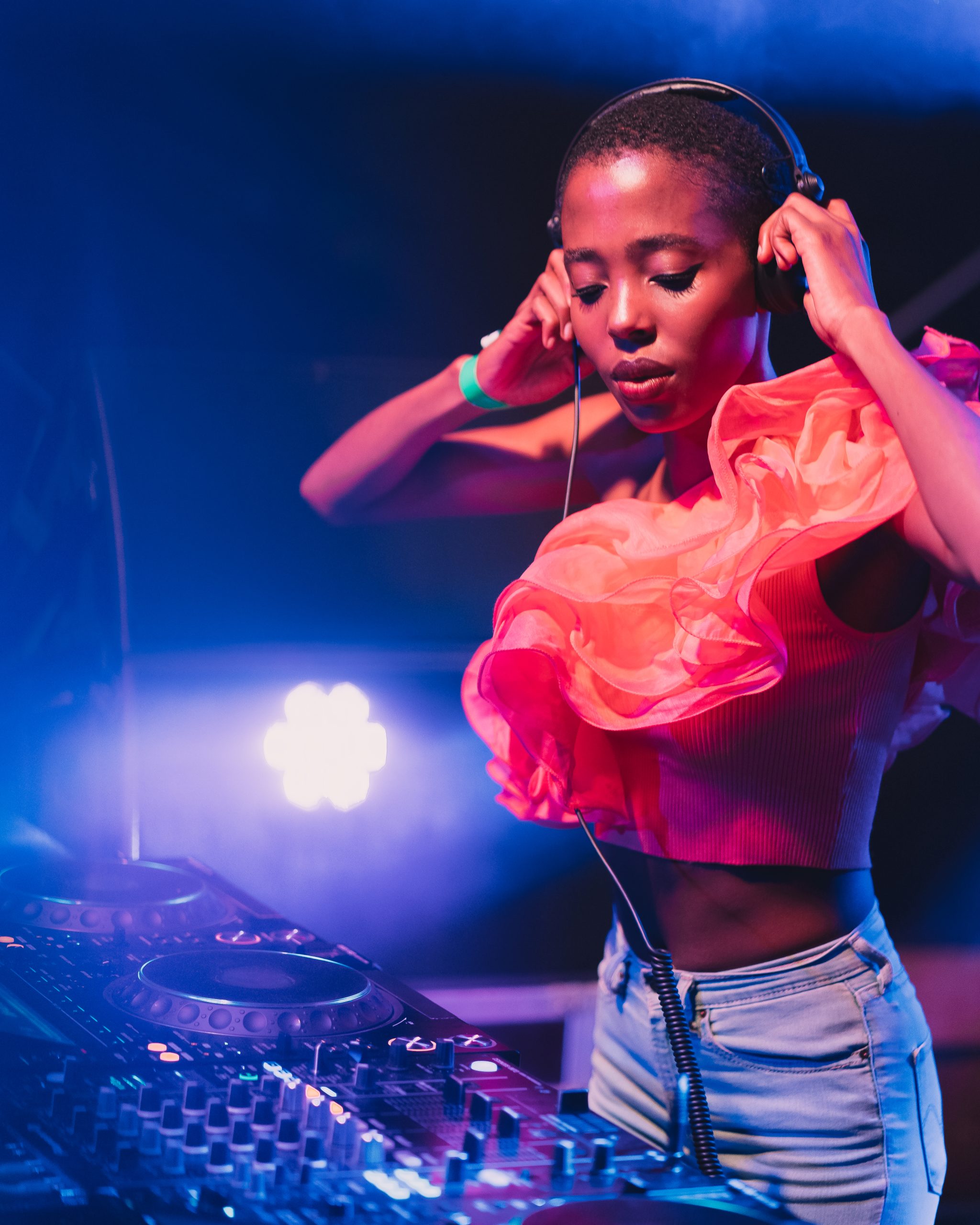
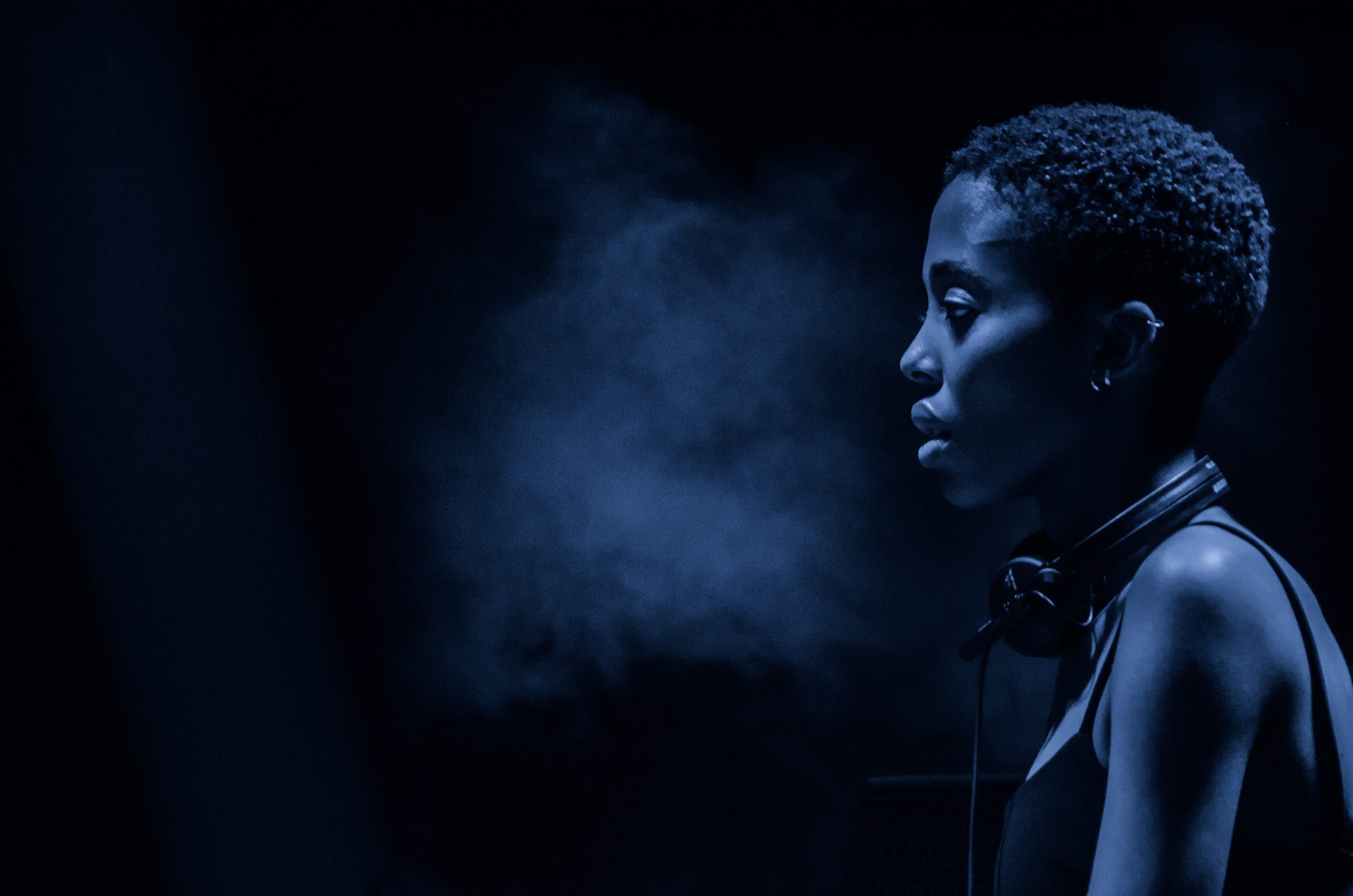
Photograph by Tom Frew.



















































